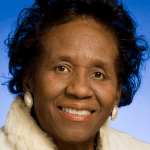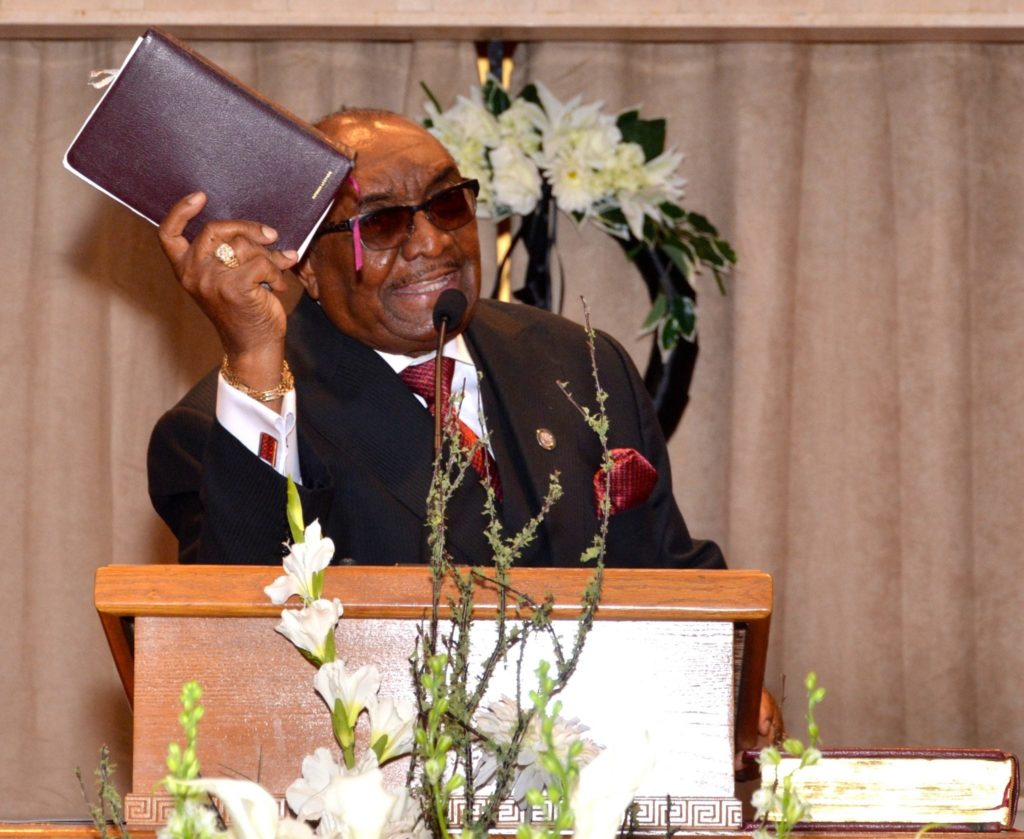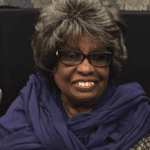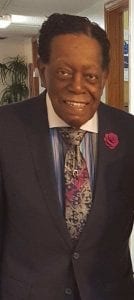The life expectancy at birth for an African-American man born as Dr. Martin Luther King Jr. was in 1929 would have been about 47, according to Vol. 50, No. 6 of the National Vital Statistics Reports. For women, it would have been 49.
The ages for white men and white women would have been 60 and 64, respectively.
Dr. King’s tragic death here in Memphis on April 4, 1968 came when he was 39. He died – as he lived – absolutely committed to changing for the better factors that affect the quality and length of lives, particularly those of African Americans.
Statistics suggest that while life expectancies have improved across the board for decades, disparities with deep roots remain. The five, ninetysomething men and women interviewed by The New Tri-State Defender for this story acknowledged changes and remaining challenges when asked to reflect in the context of Dr. King.
Barbara Cooper, 89
Tennessee House of Representatives (D-86)
Date of Birth: August 4, 1929

“In the five decades Dr. King has been gone, there have been so many wonderful achievements made by black people. He would have been thrilled to see African Americans achieving in every walk of life. …
“He would have just been so pleased and proud – so excited… on that November night in 2008 when President Barack Obama became the first African American to be elected to the nation’s highest office. I can see him up in Washington calling President Obama his ‘son.’
“When it comes to our black youth killing one another, he would have been so dismayed. But then, I also think that had he lived, and had he remained here to shepherd the movement and mobilize our leaders and our youth, we would not have this widespread phenomenon of young black men and women killing each other.
“He would have guided us with his vision. There seems to be no vision for our children except locking them up. As we remember his legacy this month, we must be reminded that there is yet so much work to do. There is no time to sit down and rest when our children can’t read and have no way of competing in the future with their peers, unless we continue Dr. King’s work in serving and uplifting our community.”
Dr. James L. Netters, 92
Mt. Vernon Baptist Church- Westwood, Pastor Emeritus
Date of Birth: September 10, 1927

“Of course, God has brought us through so many trials and challenges. We enjoy a quality of life that only existed back then in the imagination of Dr. King. …
“I remember as a young preacher in 1963 going to Washington where Dr. King delivered his ‘I Have A Dream’ speech. I helped set up the stage as thousands and thousands of people gathered there at the Lincoln Memorial. We were setting up, and I remember sitting down at the back of the stage when he began speaking. I was riveted to that seat as he encouraged and uplifted us all.
“After that, I would have the opportunity to meet with him several times at his room in the Lorraine Motel. He would stay in that same room all the time. Of course, we marched along side of him during the Sanitation Strike.
“But before that time, it was in 1964, seven of us were inspired by Dr. King to stage a sit-in on the city bus. We were arrested, and they put me in the car with Jesse Turner (former national NAACP treasurer, Tri-State Bank president and Shelby County Commissioner). While we were in that police car, Jesse told me to pray, and I said:
“‘Lord Jesus, forgive these police officers for taking us to jail, for they know not what they do. They are arresting us because they want to maintain the status quo. But forgive them, Lord.’
“Then, one of the officers put his hand on his billy club and said, ‘OK, preacher, that’s enough.’
“Then I said very loudly, ‘And Lord, AMEN.’ Jesse and I would laugh about that for many years.
“But Dr. King’s dream is still alive, and I carry it, living in the dream, and it is still just as strong and as forceful as it was in 1963.”
Dr. Erma Clanton, Professor Emeritus, 95
University of Memphis
Date of Birth: February 5, 1923

“I was working on my master’s degree at the University of Memphis when he was assassinated. Like most young, African-American people, we were inspired to give of ourselves in serving and helping others.
“I began teaching English and Speech at Melrose High School in 1969. We had to be more than just teachers in the classroom. We were parents and counselors and nurturers of our students. Dr. King was driven by the vision of our children doing better than we did each generation becoming more and more successful.
“As I moved to the University of Memphis and began teaching Theater and Communications, I tried always to create new opportunities for our children to act, to speak and to communicate effectively. Those were heady days when we performed all over the country versions of my original stage production, ‘An Evening of Soul.’
“Many students were the first to attend college, and on the high school level, some of those children had no dream of attending college after graduation. Those shows instilled a sense of pride and beauty in being “young, gifted and black,” to use the words of a songwriter.
“I like to think that Dr. King would have loved those productions and what I was trying to do…”
Norvelle Sanders, 88
Member of Kappa Alpha Psi for 70 years
Date of Birth: December 5, 1930

“I was born in Yazoo City, Miss. My mother left me with my grandparents who lived in Memphis. She went up to Detroit to get a good job.
“I graduated from Fisk University, where I pledged Kappa. After graduation, I went up to Michigan to live with my mother. I stayed a few years, but then returned to Memphis in 1960.
“Back when Dr. King was involved in the civil rights movement, the Kappas as well as all the black, Greek organizations stood with him. Organization of the marches and protests were coordinated through ministers and their churches.
And so, there was a strong, Greek presence in Dr. King’s efforts and other civil rights leaders through the churches…
“Mr. Obama is the embodiment of Dr. King’s dream for future generations of black children. If his spirit was anywhere around the inauguration, he was leaping with joy.”
Opal Carpenter Mayfield, 90
Retired Teacher
Date of Birth: February 5, 1928

“…Dr. King had galvanized blacks all over the nation. We were left with his dream, and that helped to move us forward.
“My husband and I had six children. He died of cancer when they were very young. I raised them by myself, all six – four boys and two girls. All of them have masters and doctorate degrees.
“That day when Dr. King was killed, I believe we all realized that quitting was not an option, and failure was not an option. It was a sad day, and all we could do was pray.
“I taught school and retired after 30 years. … I believe all educators felt a duty and responsibility to guide and nurture our kids, not just in the classroom, but we had to teach them life lessons that would carry them through to adulthood.
“All of us were part of Dr. King’s legacy. We had to go on. We had to embrace the dream for all our children.”



